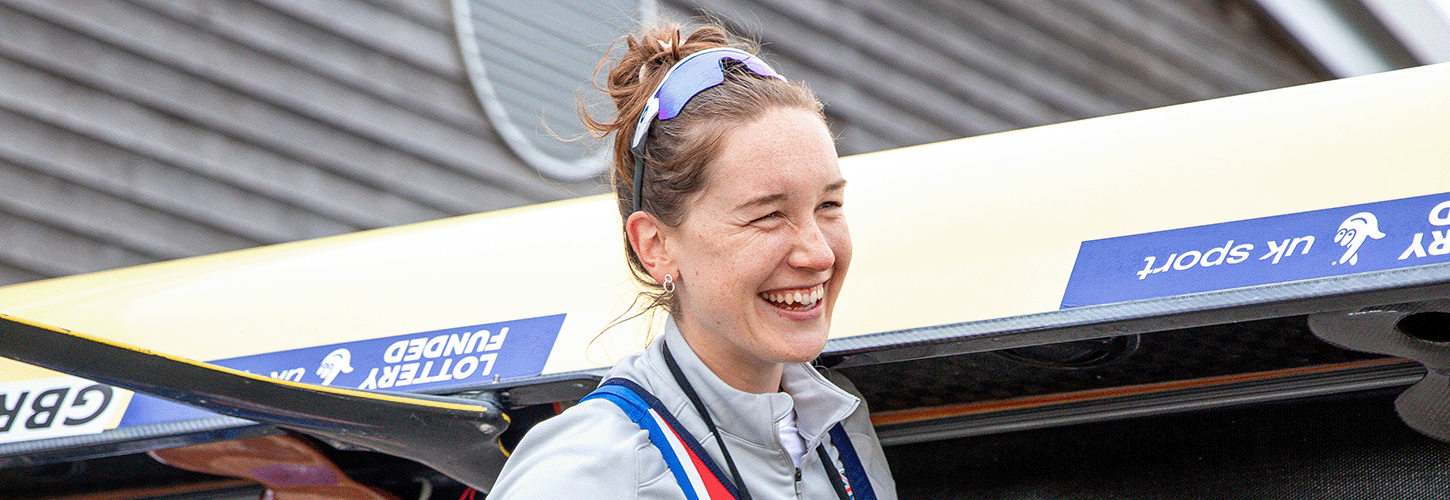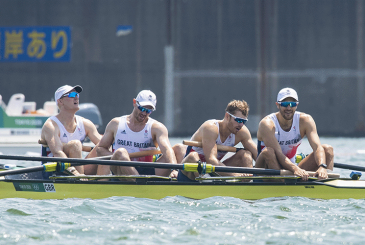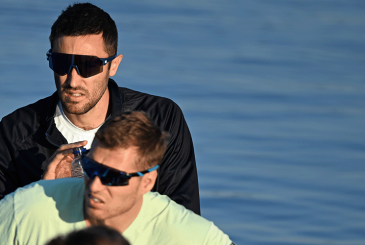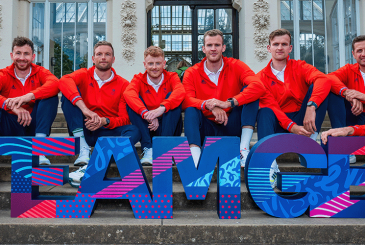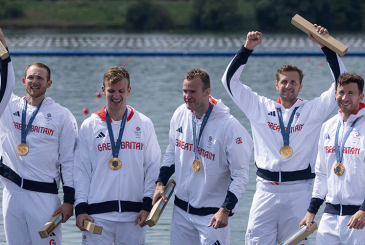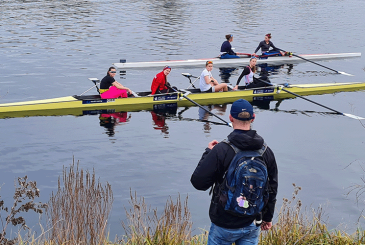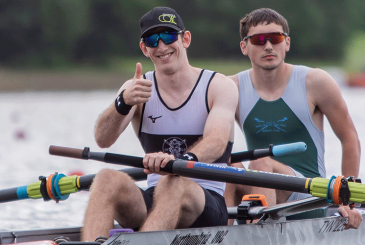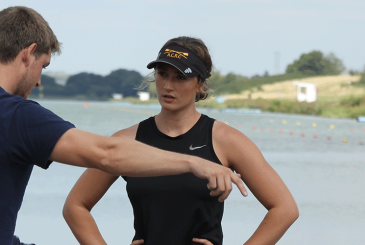Competitive rowers will spend countless hours training, gaining mileage and refining skills. Reaching your full potential is hugely dependent on your approach to all this training. A ‘training mindset’ is the constant desire to improve and thrive in your environment alongside owning training and recovery every day.
Sport and Exercise Psychology Lecturer and Chartered Psychologist Dr Katie Sparks explains how to cultivate your best training mindset, drawing on key learnings from a recent webinar on which she was a panellist alongside GB Rowing Team athletes and Olympic medalists Esme Booth, Heidi Long and Holly Dunford.
Using drive and vision to push you forward
Rowing is a choice; it should always be your choice. Therefore, there must be a reason why you row. So, what makes you train on the bleakest of early mornings? What drives you to keep striving for success even when you’ve had a significant setback?
To answer these questions, think about exactly what you want to get from your rowing. It could be fulfilling your love for the sport, a sense of belonging, testing your limits, or striving for excellence. Understanding what your purpose is for participating in rowing will help you to stay committed, enjoy the process and guide your journey.
Your purpose tends to align with specific goals. Start with your long-term goal, which will probably be outcome-related such as being selected or winning a medal. Then break this down into medium-term goals such as personal bests. Lastly, define your short-term, process goals by asking what the step-by-step actions are that will lead you to achieving your medium- and longer-term goals.
Ensure that you’re approaching your training with purpose rather than just ‘getting through it’
Set and achieve process goals for every training session to ensure that you’re approaching your training with purpose rather than just ‘getting through it’. Making small incremental improvements will accumulate into significant progress.
Tracking your progress towards your goals is also important. Heidi mentioned that she drew a ‘wall of success’ – writing small wins on each brick in the run up to races. This created a visual reminder of her progress, which she could look back on and see how far she had come. Building confidence and momentum through acknowledging achievements before shifting the goalposts again is a key tool in your training mindset.
Holly added, “Celebrating the small wins can help you build confidence in what you are doing and can make you realise that you are doing a lot of things really well rather than being scared by the huge goals we set ourselves that seem so far away.”
Handling difficult sessions and mental barriers
Training is not always easy – there will almost certainly be incredibly tough sessions.
Esme explained that she would tackle these by planning ahead how to break down the work into manageable pieces. For example, for 2000m, you could choose a different technical or power output focus for each 500m section.
She also emphasised that in very difficult moments you may need to shift your focus to one stroke at a time. She added that recognising that this phase will pass and will move you forward can keep you pushing on.
We may all be on slightly different journeys but today we face this as one.
After a tough session, connecting with crewmates can help you to understand you’re not alone in this feeling, they are also finding it hard. Dealing with the sessions as a team develops a sense of togetherness; we may all be on slightly different journeys but today we face this as one.
Holly’s tools for dealing with sessions that really push you also include focusing on one stroke at a time as well as reminding yourself of your purpose. Sticking a picture or mantra that relates to your purpose on the erg can help you in this kind of session. She reflected, “When you’re deep in a hard training session where it’s really painful because of how hard you’re pushing yourself, then it’s about thinking about the bigger picture and knowing that pushing through the pain is going to help you get closer to the goal that you want to achieve.”
However, she highlighted the importance of differentiating between the pain and fatigue involved in working hard, and pain or fatigue that are signs that you’re injuring yourself. It is therefore important to take ownership and know your body. Remember that you don’t have an endless supply of energy – recovery is just as important as training. If you have insufficient recovery, your body may force you to rest through injury or illness. Be brave about taking the time off when needed rather than continuing to train, resulting in worse injury.
Trusting the process and building resilience
Everyone’s rowing journey is different; therefore, trust your own path. Some days, you may feel you can give 10 out of 10 but at times you will only feel 6 out of 10, but you can still commit to providing your best 6 out of 6. What matters is consistently showing up and giving your best for that day, always asking yourself, “How can I maximise this session in my current state?”
Setbacks are inevitable; even at elite level, everyone is ‘work in progress’. In fact, you would not have setbacks unless you are challenging yourself, and challenge leads to progression.
Emotions likes frustration or disappointment… are a proportionate and healthy response to the situation.
Build resilience by having a strong support system that includes coaches, crewmates, family and friends. Esme and Heidi stressed the importance of debriefing after a hard session, allowing you to gather a more objective and honest reflection of it rather than taking the session personally and overly self-critically.
Heidi also identified the benefit of acknowledging emotions likes frustration or disappointment as these are a proportionate and healthy response to the situation. Letting yourself ride the wave of emotion allows you to process and gain clarity on what went well and what didn’t. Esme noted that it’s vital to follow up days like that with ‘self care’ such as cooking or spending time with family, as this can help you to reset.
Key points about your training mindset
A strong training mindset is about ownership, consistency, purposeful actions and resilience.
- Make sure that you can identify your drive and set purposeful goals for each training session
- Track and reflect on own progress to build confidence and momentum
- Handle difficult sessions with resilience through breaking it down, taking it stroke by stroke, connecting with crewmates and remember the bigger journey
- Trust the process; this was your choice so own it
- Remember that progress isn’t always linear, but with the right mindset, every session becomes a step toward achieving your full potential.
Photo: British Rowing.


